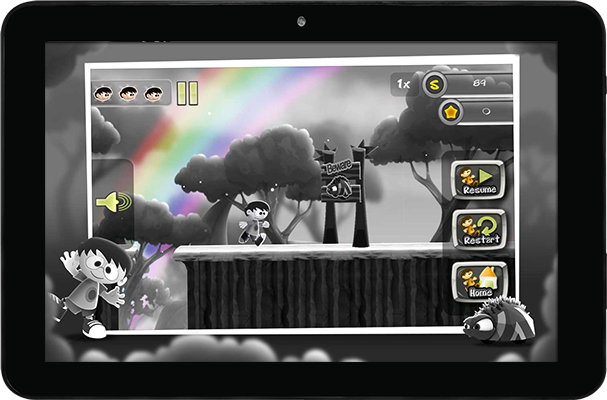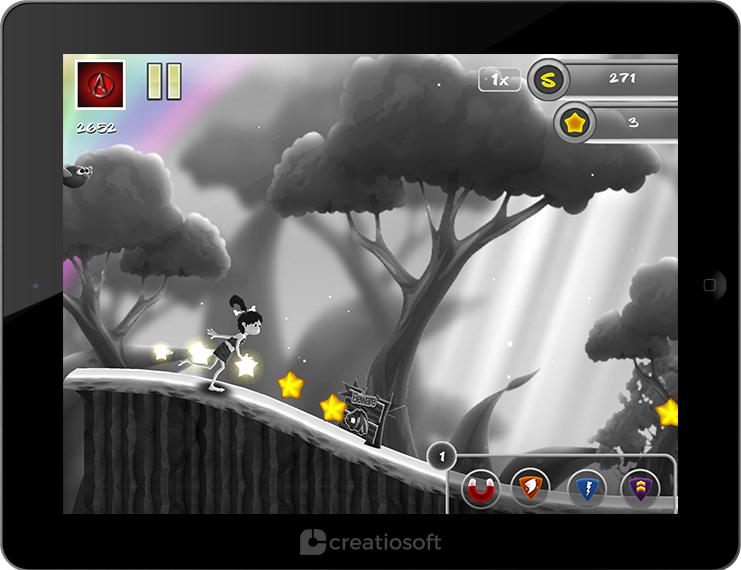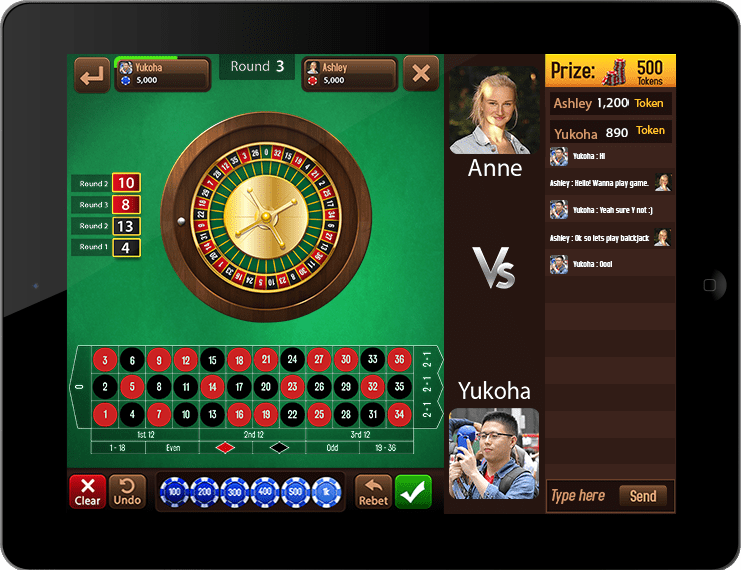Although Web3 is hailed as the future technology for creating mobile games, is it really all that great? It is yet to be seen if the nft game development company will be able to overcome the technical difficulties involved in incorporating blockchain technology into mobile games despite the fact that the potential advantages of Web3 are undoubtedly exciting. Along with user education and accessibility needs, regulatory and legal issues must also be considered.
Additionally, the market for a mobile game development company is already competitive. The market already has a large number of popular games. It’s unclear if Web3 will be able to alter the surroundings. There is an opportunity for creativity and experimentation in the mobile gaming market. Web3 might present intriguing new opportunities for developers willing to take a chance. It is something to keep an eye on, regardless of whether it will transform the game or merely be a passing trend.
One area that has seen substantial change is mobile game creation, and poker games are no exception. In this blog article, we will look at how Web3 is changing the world of crypto poker development.
Let’s start the journey to the world of Web3 in Mobile Game Development:
What is Web3?
Web3 refers to a new generation of web technologies and protocols. These allow decentralized and peer-to-peer user interactions, eliminating the need for middlemen. Web3 intends to build a more open, transparent, and secure internet. It is in contrast to Web2, characterized by the predominance of centralized platforms. They also collect user data for targeted advertising. Due to these features, most mobile game development company is using it recently.
Some key features of Web3 include:
Decentralization:
Decentralized operations are the goal of Web3 technology. This indicates that they don’t rely on a central authority to make transactions or other user interactions. Instead, they employ blockchain technology to ease peer-to-peer exchanges and safe data sharing.
Interoperability:
Web3 technologies are meant to work together. This refers to their ability to collaborate to build a more coherent and connected digital environment.
Security:
Using sophisticated encryption and cryptography, Web3 technology is more secure than Web2 technologies.
User ownership:
Users will have more ownership and control over their data and digital assets thanks to Web3 technology. They can utilize and handle it in whatever they see appropriate.
Benefits of Using Web3 in Mobile Game Development:
When it comes to mobile game creation, Web3 technology offers a lot of advantages. Using Web3 technology by a mobile game development company increases security, improves user experience, and opens up new monetization options. As the decentralized web evolves and matures, we may expect to see more mobile games that employ Web3 technologies in novel and fascinating ways.
Here are some specific benefits that come with using Web3 in this context:
Enhanced Security Features:
The security and privacy of player data are critical for the nft game development company. Web3 technology makes use of blockchain and cryptographic protocols. Both are well-known for their high levels of security. They offer strong encryption mechanisms and decentralized storage solutions. Developers may protect user data by using Web3 technology in mobile games. It also guarantees that all transactions are safe. These factors reduce the danger of data breaches and unauthorized access. Players may have peace of mind knowing that their personal information is protected. Their gaming experiences are not jeopardized, thanks to the power of blockchain.
Enhanced Ownership and In-Game Assets:
The concept of improved ownership is one of the primary benefits of Web3 in game development used by a mobile game development company. By utilizing blockchain technology, gamers can own their in-game assets. For example, virtual items, characters, or even entire game levels. These assets are held on a decentralized ledger. It ensures transparency and removes the danger of loss or theft. Users can freely trade or sell their assets outside the game’s ecosystem. This trading establishes a dynamic secondary market. It allows users to monetize their gaming successes.
Transparent and Secure Transactions:
Web3 allows mobile games to integrate De-Fi protocols. It allows for safe and transparent transactions inside the gaming environment. Players can engage in peer-to-peer transactions without relying on centralized intermediaries. These are buying and selling in-game objects using smart contracts. This reduces the possibility of fraud. It also ensures fair and tamper-proof transactions. These transactions boost player trust and encourage a more immersive gaming experience.
Community Governance and Consensus:
Web3 introduces the notion of decentralized governance to mobile games. It allows players to actively participate in decision-making processes. They influence the gaming environment. Players can vote on game updates, regulations, and alterations using DAOs. This inclusive approach generates a sense of community ownership. It also encourages players to decide the future of the games they like. It is done while ensuring that leaderboard rankings are free of individual biases.
Preserving Fairness and Leaderboards:
Leaderboards are an essential component of crypto poker development. They symbolize the players’ competitive spirit and skill. Game makers can use Web3 to ensure that leaderboards stay fair and visible. The integrity of player scores and rankings can be protected against tampering or manipulation by taking advantage of blockchain’s immutability. This not only keeps the game competitive but also builds trust among participants and encourages healthy competition.
Examples of Successful Implementation of Web3 in Mobile Game Development
Web3 technology has transformed game development for a mobile game development company by improving gameplay, increasing user engagement, and enabling safe settings.
Let’s look at some of these instances to see how Web3 is being used.
CryptoPoker:
CryptoPoker is a well-known web-based poker platform that makes use of Web3 technology. It lets users play Texas Hold’em and Omaha poker games with cryptocurrencies such as Ethereum. Players may deposit and withdraw money securely. They can also record game outcomes on the blockchain to ensure transparency and fairness.
PokerChained:
PokerChained is a blockchain-powered poker platform that makes use of Web3. It enables users to take part in a variety of poker games by utilizing innovative contracts on the Ethereum blockchain. Players may safely deposit and withdraw money on the platform. It enables transparency by recording game results on the blockchain.
 Creatiosoft Poker Game:
Creatiosoft Poker Game:
Creatiosoft’s poker game is blockchain-based that uses Web3 technology. It provides participants with a transparent and secure platform. The game uses smart contracts to ensure fair play, safe transactions, and player privacy. It has grown in popularity due to its use of Web3 technology to provide a trusted platform for players. This allows them complete control over their funds and removes the need for a central authority.
Axie Infinity:
Axie Infinity is a blockchain-based mobile game. It has attracted much attention due to its use of Web3 technology. In this game, users may own and trade digital animals known as Axies. These are kept on the Ethereum blockchain. The game uses smart contracts to provide safe ownership and transparent transactions. These contracts allow users to earn Bitcoin by playing and exchanging Axies. The success of Axie Infinity highlights Web3’s ability to create a thriving economy within a mobile game.
CryptoKitties:
CryptoKitties is another famous example of practical Web3 usage by a mobile game development company. It is a collectable game where users can purchase, breed, and trade individual digital cats. It is done by utilizing blockchain technology. Each CryptoKitty is represented as a non-fungible token (NFT) on the Ethereum blockchain. It allows participants genuine ownership of their digital assets. The game’s integration of Web3 technology and NFTs ignited a global frenzy. It also opened the road for blockchain adoption in the gaming industry.
Integrations for Web3 in Mobile Games
The blockchain and decentralized systems back web3 technology. It has the potential to revolutionize the field of mobile game production. Integrating Web3 technology into mobile games opens up new opportunities for creators and users. The crypto poker development creates immersive and compelling gaming experiences. They include wallet functionality, using NFTs, and implementing play-to-earn features. They also enable community governance and promote cross-game interoperability. Web3 integrations increase player ownership.
Let’s look at some of the important integrations and capabilities of Web3 in mobile gaming:
Wallet Integration:
The incorporation of wallet functionality is important for Web3 integrations in mobile games. Web3 wallets like MetaMask allow players to securely store their digital assets. It also allows them to communicate with blockchain-based services. Integrating a wallet into a mobile game lets users manage their in-game assets. It also lets them participate in auctions or trade and safely transfer assets to other players. This connection provides a unified experience for players. It allows them to easily interact with the game’s Web3 capabilities.
Non-Fungible Tokens (NFTs):
NFTs have grown in popularity in the blockchain sector. Their incorporation into mobile games using Web3 technology adds a new degree of ownership and scarcity to in-game goods. The nft game development company uses them to represent unique and verifiable digital things. These are collector cards, skins, or virtual real estate, providing gamers with actual ownership over these assets. NFT integration improves the user experience by allowing them to purchase, sell, and trade their in-game products on blockchain markets. This adds a new dimension of value and investment potential.
Play-to-Earn Mechanics:
Web3 technology enables the incorporation of play-to-earn principles into mobile games. Developers use blockchain-based systems to reward players’ in-game achievements or contributions with Bitcoin or other digital assets. This integration encourages player participation and generates revenue opportunities inside the game ecosystem. Players may win real-world gifts. They use them to use or sell outside of the gaming area, providing a layer of motivation and excitement.
Community Governance and Voting:
Web3 supports decentralized governance models. It is done by allowing participants to engage in decision-making through voting processes. Mobile games can have community governance tools that enable players to propose and vote on factors. These are updates, additions, or adjustments. This integration empowers the player community by instilling a sense of ownership and engagement in the game’s future path. Developers use Web3 technology to implement community choices. It provides a fair and inclusive development process.
Cross-Game Interoperability:
Web3 technology enables interoperability between games and platforms. This factor allows players to use their in-game assets across many titles. Players transfer NFTs across compatible games by using blockchain standards and protocols. These are ERC-721 or ERC-1155. This integration opens up new avenues for the nft game development company developer cooperation. It also gives gamers a more comprehensive and linked gaming experience.
Conclusion
Web3 technology can completely transform the mobile game production industry. Web3 delivers a new era of gaming. Here players can interact, compete, and enjoy the game like never before. All thanks to its transparency, security, decentralized asset ownership, cross-platform compatibility, community-driven approach, and suitable leaderboard methods. Developers can create engaging, trustworthy, and exciting poker experiences. It also protects user data and assures fair gameplay by harnessing the power of Web3.
As Web3 technology improves and matures, mobile game developers have more opportunities to build new gaming experiences. Developers should embrace web3 technology. They should investigate its possibilities for boosting security, improving user experience, and providing new monetization options for a mobile game development company.
FAQ:
Q: What is Web3, and how does it relate to mobile game development?
A: Web3 refers to a group of technologies, largely blockchain-based, that aspire to establish decentralized and transparent networks. Web3 enriches gaming experiences, provides safe asset ownership, and empowers users in mobile game creation with features like payment integration and community governance.
Q: How does Web3 ensure data security in mobile games?
A: Web3 technology takes use of blockchain’s transparency and tamper-proof characteristics to secure data security in mobile gaming. Our developers make sure that fraudulent actions are avoided, user identity is preserved and ensures the integrity of leaderboards by putting gaming data on the blockchain.
Q: What is the role of non-fungible tokens (NFTs) in Web3 mobile game development?
A: NFTs play an important role in Web3 crypto poker development. It expresses unique and verified in-game assets. Creatiosoft ensures the use of NFTs in the game. NFT integration enables players to own, trade, and monetize these assets, increasing player engagement and giving new investment options inside the game ecosystem.
Q: How does Web3 foster player engagement in mobile games?
A: The use of web3 technology increases player engagement in mobile games. It includes play-to-earn principles. Through blockchain-based systems, gamers of our poker game receive prizes in the form of bitcoin or digital assets for their in-game achievements, establishing economic incentives and improving the overall gaming experience.
Q: Can Web3 enable cross-platform gameplay in mobile games?
A: Yes, Web3 allows for cross-platform gameplay in mobile games. Our developers ensure to create seamless experiences in which players compete against each other in real-time, independent of the platform they are using. For example, mobile phones, desktop computers, or virtual reality headsets, by utilizing blockchain technology.
Q: How does Web3 empower the player community in mobile game development?
A: Web3 enables the player community in mobile game creation by including community governance capabilities. Decentralized governance models allow players to engage in decision-making processes, propose and vote on game updates, and actively define the game’s path, generating a sense of ownership and inclusion.
Q: How can Creatiosoft assist in incorporating Web3 into mobile game development?
A: Creatiosoft specializes in Web3 integration for mobile game development. We can assist you with easily integrating Web3 features into your game, such as wallet functionality, NFT support, play-to-earn mechanisms, community governance systems, and more. Our team of experienced developers can walk you through the process, assuring the proper adoption of Web3 technology in your mobile game.















